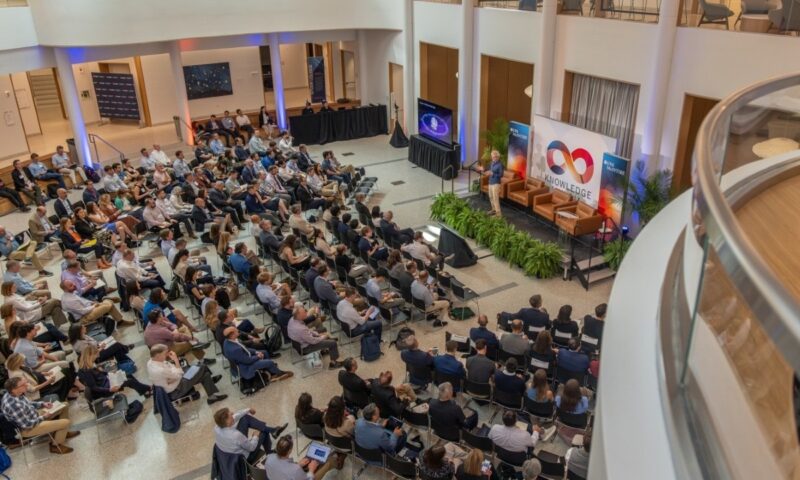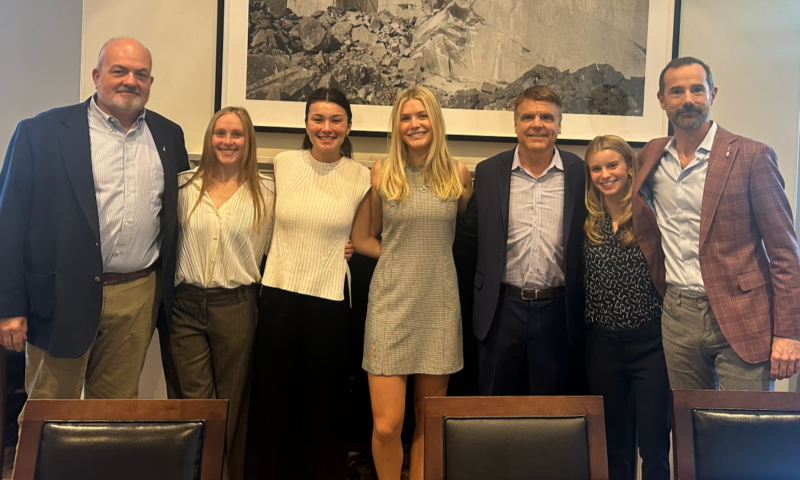
Mark Metcalf
If you have questions about China, Professor Mark Metcalf is the right person to talk to.
His expertise stems from a career that began with the U.S. Navy, where he served as a Naval Cryptologist in the Naval Security Group before retiring as a Commander. He then spent more than 25 years as a contractor working as a Signals Analyst, Systems Engineer, Project Manager (PMP), Technical Translator (Russian and Chinese), and Intelligence Analyst in support of the Department of Defense and other U.S. government agencies.
He came to McIntire this year as a Visiting Lecturer of Global Commerce to teach “Doing Business in China,” on the strength of experience and research that are focused on contemporary Chinese military perspectives of strategy and ethics. That knowledge comes from a penchant for digging into Chinese military texts to better understand the Chinese military approaches to decision making.
Metcalf has taught at UVA before, leading courses in Chinese literature in the Department of East Asian Languages, Literatures, and Cultures since 2014. For his McIntire seminar class, Metcalf delves into the historical, political, and sociological roots of business practices and norms in the PRC, and encapsulates his areas of expertise in contemporary Chinese politics, military ethics, and strategic thought.
“Doing Business in China” arrives as one of the inaugural parts of the Global Challenges Initiative, a broad thematic effort undertaken by the School to reimagine its global curriculum. Driven by innovative programming and collaborative engagement with alumni and industry, the initiative employs a focused intent to teach business to address real-world opportunities that can solve many of the world’s most pressing challenges. Metcalf’s specialized seminar is also one-third of a triumvirate of similarly sized courses that include “Global Digital Divide: Big Tech in a Multipolar World” and “Impact Investing,” taught by guest Professors Rick Carew (A&S ’04) and Max Gottschalk (McIntire ’95), respectively.
“The global context of business is rapidly changing—maybe much quicker than is commonly understood,” says Professor Peter Maillet, McIntire’s Associate Dean for Global Affairs and Director of the Center for Global Commerce. “As a top business school, our curriculum needs to reflect that rapid change, and both ‘DBIX’ (Doing Business in…) and ‘Global Challenges’ courses are meant to be responsive to that need. We knew what we were looking for in creating these classes, and through some conversations and very good fortune, we were able to launch them with the help of three incredible subject matter experts.”
Regarding Metcalf’s prowess for interpreting the Chinese historical and philosophical origins responsible for many of the practices that inform current business, political, and social interactions in the PRC, his knowledge came to McIntire during this crucial and unprecedented semester when many of these uniquely Chinese perspectives often remain misunderstood in the West.
We spoke to Metcalf about a few of China’s global business issues and how students are learning to approach commerce in the world’s second-largest national economy.
How have traditional Chinese business practices impacted the continuing developments in U.S.-China trade relations?
There are two aspects of the ongoing trade relations that I have found quite interesting. First, not “losing face” continues to be a very important consideration to China. For example, while China has agreed to strengthen its protection of foreign intellectual property (IP), it has not been willing to publicly admit that Chinese commercial or government entities have previously violated IP rights. To do so would not be consistent with previous Chinese declarations of honoring foreign IP rights, resulting in a loss of both international and domestic “face.” Second, the U.S. negotiators seem to be using tactics from the traditional Chinese playbook. When it became obvious that China was unwilling to negotiate in good faith on a particular issue, they simply departed and would return when China was willing to negotiate sincerely. Although some Western critics have interpreted such measures as failures, China’s repeated willingness to return to the negotiations demonstrated their effectiveness.
In what ways does a project like the Belt and Road Initiative (BRI) stand to augment China’s considerable global influence? How might it affect the position of American-based firms—especially those that already have business interests in China?
The ambitious BRI is a tremendous source of domestic pride, allowing China to finance and carry out significant infrastructure projects around the globe. The government views BRI as a key element of the so-called “China Dream”—returning the nation to both its former glory and its rightful place in the world. However, in spite of achievements, BRI has also been criticized for alleged predatory lending practices and its near-total reliance on Chinese firms (and workers) to implement BRI projects, criticism that has somewhat taken the shine off the initiative. While it is certainly possible for U.S. companies to participate in its projects, BRI is a China-led endeavor that is intended to showcase Chinese capabilities. Accordingly, it seems unlikely that there will be opportunities for significant participation by U.S. companies.
In your experience, what are the most recurrent interpersonal obstacles to non-Chinese business people launching successful ventures in China? What seems to be most difficult for outsiders to appreciate?
Most of us Westerners don’t have an adequate appreciation for the significant role of relationships—or guanxi—when doing business in China. While networking is obviously important to doing business in the West, it usually has neither the depth nor the duration of Chinese business relationships. Such relationships permeate the various strata of Chinese society (e.g., family, neighbors, and classmates), are developed over the long term, and have both benefits and obligations. Developing successful business relationships in China requires both considerable time and a demonstrable commitment.
Chinese history, geography, politics, social customs, and culture can be daunting for the uninitiated—and as the current pandemic situation has shown, those complexities can certainly cause ongoing confusion and tension in the U.S. In what ways has the situation impacted discussions in the course?
While the course syllabus wasn’t updated to incorporate readings regarding the pandemic, the topic has certainly come up during our online sessions. For example, the topic for a recent week was the Chinese Communist Party (CCP), its societal influences, and its pervasiveness in Chinese business activities. One of the readings discussed the role of the CCP in handling the 2003 SARS epidemic, explaining how and why the CCP responded as it did. We noted several similarities with the ways that the CCP has handled the current COVID-19 pandemic. Other aspects of contemporary Chinese culture that we studied earlier in the semester (e.g. social norms, situational ethics) have also been highly relevant to our understanding of the current situation.
How would you define your experience been teaching the course after shifting it online? How have students been with the new format and grappling with the challenges of doing business in China?
I have been unexpectedly and unreservedly delighted! During the first half of the semester there was a high level of student spontaneity and engagement during classroom discussions. I was concerned we would lose much of that when classes went online, but I was wrong. Not only have the students been consistently well prepared for class, but the online discussions have been as lively as ever—even though time differences mean that some students in Europe are participating late into their evenings. While I would certainly prefer a classroom setting, given the current situation online sessions are more than adequate. Kudos to the entire McIntire technical support staff for making it happen so efficiently!


